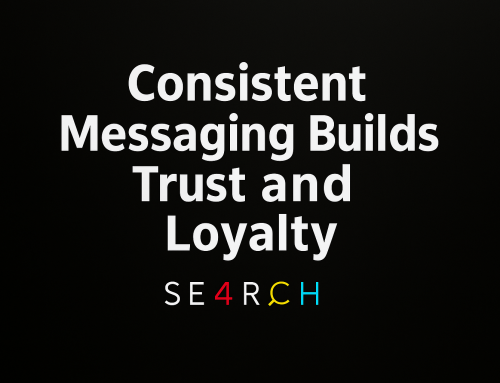Over the past 20-plus years working with small and medium-sized businesses, I’ve noticed a common pattern. Entrepreneurs dedicate a great deal of time and effort to their business plans, carefully devising financial strategies, operational plans, and growth targets. When it comes to marketing, it’s often considered an afterthought.
The problem? By the time many businesses start focusing on marketing, they’re already up and running, and they have defaulted to general, untargeted tacticsto get themselves “out there.” Social posts without strategy, ads that target everyone instead of the right customers, and websites that don’t speak to a clear customer group.
This wide-net approach might get you a few likes or even a handful of enquiries, but it also places you in the same crowded pool as everyone else.
The businesses that really succeed are the ones that take the time to:
- Define their ideal customer avatars – who they really want to serve
- Build a clear marketing strategy – aligned with their business goals
- Focus on the right channels – not every channel, just the ones that matter most
- Create consistent messaging – that resonates with the right people
Marketing isn’t just about visibility; it’s about clarity, positioning, and connection. A well-structured marketing plan is the difference between shouting into the void and having the right customers lean in and say, “This is exactly what I’ve been looking for.”
That’s why in my work as a coach and consultant, I emphasise creating a marketing strategy alongside the business plan. It doesn’t have to be complicated or overwhelming. What it needs to be is intentional and targeted. The most important point here is to consider the marketing plan as important as the business plan, not just a section to complete.
If you’re launching (or even if you’ve been running for a while), take a step back and ask yourself:
- Do I know exactly who my ideal customers are?
- Am I clear on the best way to reach them?
- Do I have a plan I can follow week to week?
- Do I know if what I’m doing is working?
If the answer is “not really”, it’s never too late to fix that. And once you do, you’ll find that your marketing becomes not just easier, but far more effective.
To be frank, and coming from a place of kindness, having a ‘general’ marketing plan allows you to believe it’s working without taking responsibility for whether it is or not.
For example, let’s consider a hair salon, they would probably say ‘my customers are everyone who needs a haircut’, although somewhat true, could we focus that a little?
Is there a limit to how far customers will travel? Would your customer be those living within a 30-mile radius?
Are customers generally male or female? Older, younger?
What services are you known for? Do you specialise in particular areas in your sector?
Do you have services you’d like to push? Do you have a USP?
Although the above is a very simplistic example, we can start to see how, by asking the difficult and relevant questions, you can form specific customer groups to target.
Is one of the hair salon’s ideal customers a specific gender, living in a 30-mile radius, aged 30-50, and specifically wants hair colouring?
Now we can see how your channels, tone of voice and content are important within your marketing strategy.
Se4rch Marketing provide marketing coaching that helps you build a strategy that really works. If you would like to know more, please message me or email me joe@se4rch.co.uk.






